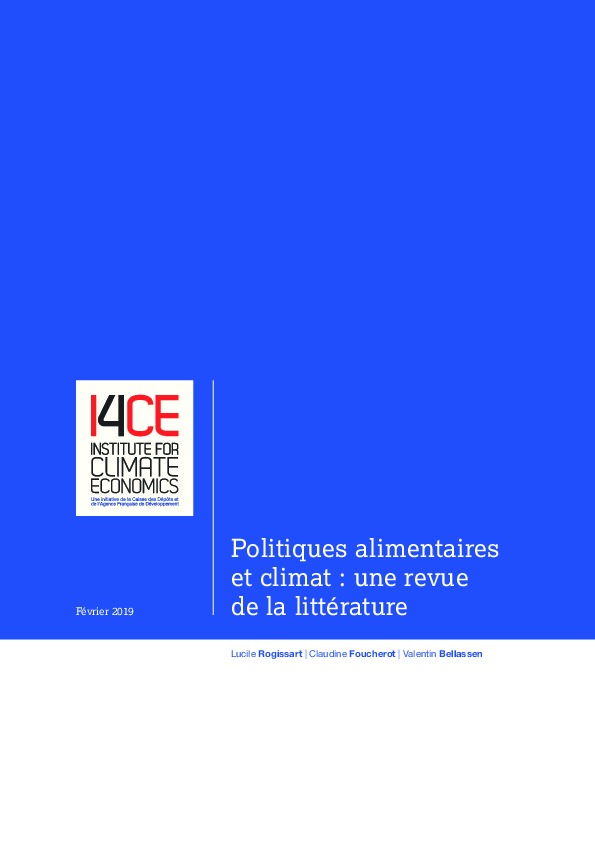Food policies and climate: a literature review
Food consumption is responsible for around 28% of total greenhouse gases (GHG) emissions (see I4CE study on the issue)
Which dietary practices have the largest potential for reducing food-related GHG emissions? Is it possible to reduce food-related emissions while also targeting public health and environmental goals such as the preservation of soils or water quality? Which public policies could be implemented to push consumers towards less GHG intensive diets?
In the present study, I4CE summarizes the answers academic literature can bring to these questions.
It appears that reducing the intake of animal products has a major mitigation potential, as these products are responsible for almost two thirds of total food-related emissions. Besides, dividing by two the current levels of food waste could enable to reduce food-related emissions by 5%. The origin or the seasonality of products have a limited impact comparatively to total food GHG emissions.
World food GHG emissions


